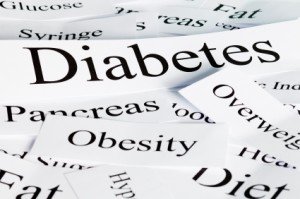 With diabetes, the food that you choose to eat is of utmost importance. When you are diagnosed with diabetes, you are expected to modify your diet based on what your body’s needs and limitations. Most people think that having diabetes prohibits them from eating sweets and other foods high in sugar. While this is true, other foods, such as those that are generally high in carbohydrates and fats, should also be controlled. Keeping a balanced diet is the key to keeping your diabetes symptoms in check. Here are some tips on how to eat right for diabetics:
With diabetes, the food that you choose to eat is of utmost importance. When you are diagnosed with diabetes, you are expected to modify your diet based on what your body’s needs and limitations. Most people think that having diabetes prohibits them from eating sweets and other foods high in sugar. While this is true, other foods, such as those that are generally high in carbohydrates and fats, should also be controlled. Keeping a balanced diet is the key to keeping your diabetes symptoms in check. Here are some tips on how to eat right for diabetics:
- Watch out for portion sizes. From now on, you have to be mindful of the serving sizes of the foods that you eat. One good and useful tip that you use here is dividing your plate. Draw an imaginary vertical line in your plate dividing it into two. Then further divide your plate into two more portions. Now that your plate is divided into four equal portions, ¼ should be filled with starch foods and grains. These include pasta and brown rice. Another fourth of your plate should be filled with protein-rich foods like lean meat, poultry, tofu, and fish. Combine the last two divisions and make sure that half of your plate contains non-starchy vegetables. Examples are green beans, carrots, and broccoli.
- Eat more high-fiber and complex carbohydrates. In general, carbohydrates should be controlled in a diabetic diet. These are the ones that are responsible for your sudden spikes in blood glucose levels, so it is natural for diabetics to hold their reins on carbohydrates. However, not all carbohydrates have a sudden effect on your glucose levels. There are slow-release or complex carbs that are digested more slowly, thereby preventing your body from producing too much insulin. You cannot totally let go of carbohydrates since they provide energy for your body, and these complex carbohydrates give you energy for a longer period of time. They also help you stay full longer.
- Be sweet-smart. You can still eat sweets, as long as you moderate them. One thing that you can do is to cut back on rice and pasta if you want to eat sweets, since all of them are high in fast-release carbohydrates. You can also opt for healthy fats in your dessert, such as peanut butter, yogurt, and ricotta cheese, since fat slows down digestion. Eat sweets in conjunction with other healthy food rather than as a standalone snack, since the latter will only cause your blood sugar levels to rapidly go up. And as always, watch out got your portion sizes.
- Keep a food diary. Your food diary can help you keep track of what you eat and what your problem areas are. You can write down your calorie intake here so that it becomes easier for you to count the calories that you take, and identify the meal where you had way too much calories than you realized. A food diary can be helpful not just for weight loss watchers but also for diabetics, since it can help them keep track of their sugar and carbohydrate intake.
Learn more about diabetic meal planning and eating correctly with diabetes check out our FREE 3 Day Dinner Recipes by subscribing to our newsletter.
Speak Your Mind